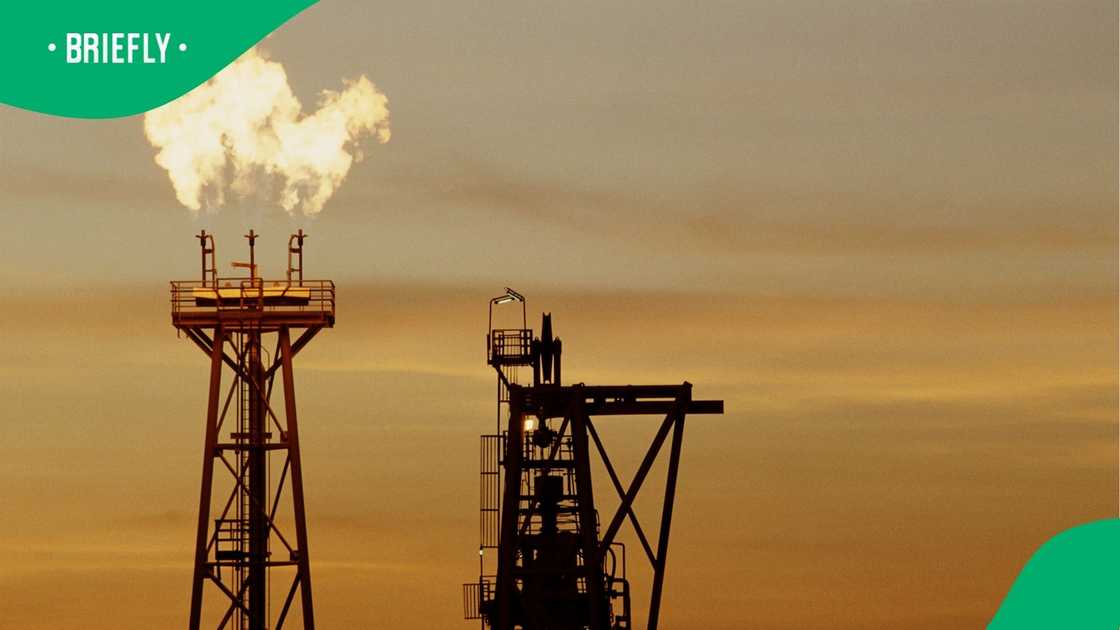Earthlife Africa Celebrates Africa Day to Accelerate the Just Energy Transition
Earthlife Africa’s Johannesburg (Jhb) branch was founded in 1988 to mobilise civil society around environmental issues in relation to people. The organisation has since grown to include branches in Cape Town, eThekwini (formerly Durban), as well as in Windhoek, Namibia.
Earthlife Africa Johannesburg hosted a ‘Scamtho’ (community dialogue) with communities in Soweto to call on government, different stakeholders, and everyone to fast-track a people-led just transition to a low-carbon economy, to protect South Africa and the wider African continent from fossil fuel extraction and further climate change risks.

Source: Getty Images
The environmental justice organisation’s vision for a Just Energy Transition includes government investment in renewable energy, the creation of green jobs, and safeguards for vulnerable communities. Earthlife Africa said:
“We urgently need inclusive policies that redress the harm caused by fossil fuel operations, which have brought pollution, health hazards, and systemic neglect instead of improvements.”
“The fight against climate change is one of the main challenges facing the planet today. The impact of extraction in our continent is environmental damage, climate change and extreme health risks, which affect many of our communities.
PAY ATTENTION: stay informed and follow us on Google News!
The just transition will ensure that the shift to a green economy benefits African nations,” noted Dumazile Ntsele of the New Church NPO.
100 participants
The Africa Day celebration, Scamtho, held at the Soweto Career Centre on 27 May, was attended by 100 participants from community organisations around Soweto. According to Ulrich Steenkamp, Programs Officer at Earthlife Africa, the purpose of the event is to put more emphasis on the need to place frontline communities at the centre of climate action and amplify community voices who are directly affected by fossil fuel extraction and the economic gap.
“It is critical that we address climate change, promote social justice and inclusivity. This is why we want a just transition because it involves greening the economy in an inclusive manner by creating decent job opportunities which benefit local communities and leave no one behind,” added Thabisile Mashinini, also from the New Church NPO.

Read also
“This is what billionaires should sponsor”: Lady introduces way to solve housing issue, SA excited
One of the event speakers, Mme Martha Mokate from the Soweto Electricity Crisis Community, highlighted that it is important for communities to position themselves for the Just Energy Transition by community-led planning and participation in local government ward activities and seeking government empowerment in sustainable farming methods and other information sharing initiatives which will advance community preparedness for the just transition.
"We must move away from fossil fuel energy because it causes pollution and ultimately climate change," she said.
Communities can benefit greatly from education and awareness, workshops and community meetings about the benefits of renewable energy and what the just transition is, so that they can identify how they can be part of it and benefit from it.
"This way, the communities would be more empowered to make decisions about their energy future,” added Ntsele.
The Rivoningo /Lesedi Just Transition Centre was introduced by Earthlife Africa’s Anzani Manyoka. This is a new community hub that will focus on environmental and climate justice education, organising, and capacity-building for a low-carbon future. This empowerment centre will officially be opened in Soweto, in the later months of 2025
Guest speaker, Mrs Ndivile Mokoena, Earthlife Board member, shared the ‘Restorative, Distributive & Procedural Justice Framework’ with participants. She explained how the framework grounds the just transition in equity, fairness and accountability, especially for historically marginalised groups. Mokoena put a special emphasis on the right of communities to be involved in the Just Energy Transition and to have a voice in decisions which affect their health and their livelihoods.

Read also
"Foreign currency is hurting locals": US woman shows off R18k Cape Town apartment, sparks outrage

Source: Getty Images
Fossil fuels extraction
The event ensured that there was a healthy discussion on the issues raised by speakers and areas of concern. To promote youth and cultural inclusion to the Scamtho celebration, the organisation used art, poetry and music to connect with the essence of Africa Day and the preservation of the environment through the just transition. Participants signed a Community Pledge for Africa as a symbol of their commitment to fighting fossil fuel extraction and upholding climate justice values.
Community-based organisations from Soweto were the key participants in this event. More than 100 signatures were gathered as part of the Community Pledge for Africa, where attendees committed to fighting fossil fuel extraction and upholding climate justice values. With the commitment to these values, there was a call on all stakeholders, like the government, civil society organisations and funders, to centre grassroots communities in all climate-related decision-making processes, and to do it now!
3 More opinion stories about sustainability
- Briefly News previously reported that South Africa’s reliance on fossil fuels, particularly coal, remains one of the country's biggest contributors to climate change.
- Schools in KwaZulu-Natal were celebrated for their eco-friendly efforts at the Sustainable Schools Regional Rewards Ceremony.
- G7 allies meet this week for climate talks that are likely to urge more action in a "critical decade", but could also lay bare divisions on ambitious fossil fuel commitments.
Disclaimer: The views and opinions expressed here are those of the author and do not necessarily reflect the official policy or position of Briefly News.
PAY ATTENTION: Follow Briefly News on Twitter and never miss the hottest topics! Find us at @brieflyza!
Source: Briefly News



